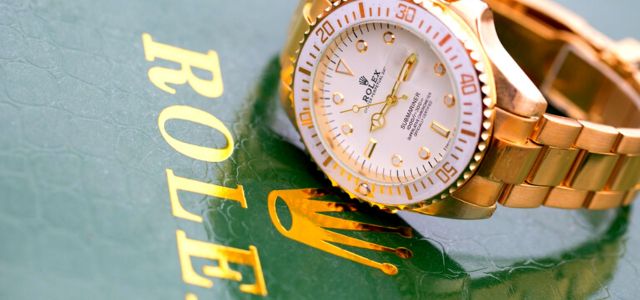In January 2024, the US Court of Appeals for the Fifth Circuit affirmed the US District Court ND Texas’ decision that BeckerTime infringed Rolex’s trademarks but refused to disgorge BeckerTime of its profits after finding that a laches defense applied. The District Court enjoined BeckerTime from further infringement, subject to various exceptions.
This case dates back to September 2020 when Rolex sued BeckerTime alleging counterfeiting and trademark infringement of Rolex’s trademarks in connection with the advertising, promotion, service, and sales of unauthorized watches and watch parts. BeckerTime sells pre-owned watches that contain Rolex parts. It sells and identifies these watches as “Genuine Rolex,” but the watches contain both Rolex and non-Rolex parts. In this case, the watches at issue were “customized” by BeckerTime in various ways, including refinishing the dials by drilling holes in them, placing aftermarket diamonds as hour markers, and applying non-Rolex aftermarket bands or straps with the Rolex trademark. Importantly, none of the watches BeckerTime sells have any indication that they originate from BeckerTime. Moreover, BeckerTime lists the retail price of the watches in comparison to non-existent Rolex watch models.
In a January 2022 Order, the District Court found that BeckerTime infringed Rolex’s trademarks and that it counterfeited Rolex’s watches. As punishment, it enjoined BeckerTime from using the Rolex trademarks in the future but found Rolex was not entitled to a disgorgement of BeckerTime’s profits due to a laches defense. During the trial, evidence was submitted that Rolex and its legal team learned of BeckerTime at least as early as 2010 but never sent a cease-and-desist letter to them and waited until 2020 to initiate legal proceedings. The District Court found this delay caused undue prejudice on BeckerTime. The Fifth Circuit affirmed this decision, especially since Rolex offered no justification for the delay. Other defenses raised unsuccessfully in the lower court included waiver, fair use, and the first sale doctrine.
On appeal, Rolex asked the Fifth Circuit to modify the injunction and requested treble damages and attorneys’ fees. BeckerTime argued the wrong likelihood of confusion test was applied by the District Court. The Fifth Circuit held there was no clear error below and the proper analysis was used. Rolex claimed the District Court erred in not awarding attorneys’ fees; however, the Fifth Circuit held the denial of these fees was proper because the laches defense applied.
However, in this case, where counterfeit marks are involved, treble damages and attorneys’ fees can be awarded according to the Lanham Act, but this was not expressly discussed by the District Court. The Fifth Circuit clearly pointed out that the Federal Rules of Civil Procedure were not properly followed by Rolex since it did not move for attorneys’ fees within 14 days of final judgment, as it was required to do. Therefore, it waived its right to recover attorneys’ fees. The Fifth Circuit remanded the case so the lower court could clarify the disclosures BeckerTime must use to comply with the injunction and avoid future consumer confusion.
This case is fact intensive with discussions of many cases and procedural learnings. The three key learnings from this case are:
- As soon as you learn another company is infringing your trademark rights, do the proper investigation and send a cease-and-desist letter timely to put the alleged infringer on notice. If you intend to initiate a lawsuit, discuss it with legal counsel and act promptly. Waiting 10+ years is likely too long.
- If you want to claim attorneys’ fees, there is no automatic right to recover those fees. If you receive an order of willful infringement or a finding of counterfeiting by an infringer, be sure to follow your court’s rules and move for attorneys’ fees swiftly and in the time allotted, or else the claim for fees is waived.
- If you want to “customize” or sell luxury products that you do not manufacture, please know you may not have an automatic right to do so. Discuss this plan with an IP attorney in your jurisdiction to be sure you are not running afoul of the original manufacturer’s IP rights.

Written by Stacey C. Kalamaras
Founder, Kalamaras Law Office
The Trademark Lawyer Editorial Board Member
You may also like…
UEFA partners with Alliance for Creativity and Entertainment to enhance global anti-piracy strategy
October 21, 2025 - The Union of European Football Associations (UEFA) has officially joined the Alliance for...
EUIPO and UANIPIO welcome the integration of Ukraine’s trademarks into TMview
The European Union Intellectual Property Office (EUIPO) and the Ukrainian National Office for Intellectual Property...
Jägermeister succeeds in opposing the EU trademark application Alten Kräuterfrau for alcoholic beverages
Mast-Jägermeister SE filed an opposition on the grounds of Article 8(1)(b) – likelihood of confusion between the signs...
Contact us to write for out Newsletter













